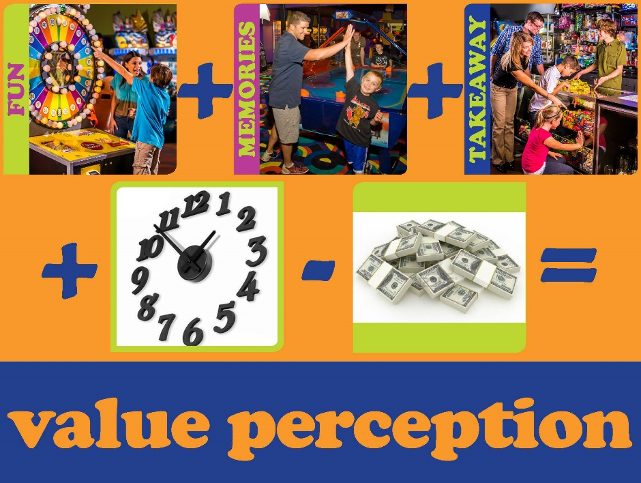Don’t Kill the Goose
And Other Thoughts on Game Selection for the FEC

George McAuliffe
By George McAuliffe, President, Pinnacle Entertainment Group
This column could easily be titled “Here we go again!!!” referring to the recent introduction of certain games operated as gambling devices in our industry. They’ve gained early popularity given their high earnings. Let’s face it, gambling devices outperform skill-based redemption, at least when narrowly measured only by a single game’s weekly sales. I would submit that you need a wider lens to truly understand a given game’s impact on an arcade, a route and our industry.
The title of this month’s column comes from a famous historical fable that tells of a man who owned a miraculous goose that laid eggs of gold (in our case, redemption). But, he got greedy. He wanted more and killed the goose, hoping to find more gold inside. That was the end of his golden revenue stream. And, that’s the problem with the short-term attraction of operating amusement games as gambling devices in FECs. A ton of history shows how the backlash can hurt operators individually and the industry as a whole.
Let’s Learn from History
We just read in RePlay a couple of months ago about the latest dust-up in Texas, where regulators are questioning (again) the whole idea of whether skill redemption runs afoul of gambling laws. It doesn’t, of course, when games operate with a predominance of skill like most redemption games. Cranes and, especially, merchandisers often have automatic percentaging or automatic win points. This means that the machine itself decides when a win happens, not the player.
This phenomenon has been going on for years. The Texas regulatory attention is just the latest. Our industry has been threatened – reasonably or not – by regulators and legislators in Florida, the Carolinas, New Jersey, Washington, Ohio, Michigan and California, to name just a few states. Years back, I think it was after Key Master was introduced (and before Sega wisely made it a skill game), that regulatory attention in California resulted in a major national grocery chain removing ALL games from their stores statewide. (The goose indeed died for that operator!)
The actions taken don’t even have to be legitimate or reasonable. In the early ’90s, Dave & Buster’s had all of their pushers pulled by a prosecutor running for higher office. Conveniently, that prosecutor showed up on site with a news crew which filmed the games being removed with the D&B logo in the background. Two days after the election, the games were returned to the facility and back in operation. They were legitimate all along.
Fortunately, the latest merchandisers, touting high-value prizes and machine-determined wins, are offered with skill options. We highly recommend you specify the skill version when you order. It may not earn quite as much as the other but you – and the industry at large – will enjoy those golden eggs for years to come.

Game Selection and Analyzing Performance
Let’s shift gears to focus on the actual performance of a game. The real, net effect a new game or attraction has on your business can often be camouflaged. We often hear statements like this: “That new game cost me $10,000 and makes $1,500 a week. I got my money back in six weeks!” Actual payback is far more complicated than the simple formula of cost divided by sales.
Other factors enter the equation, and I’d submit the first is understanding your player, his behavior and his decision-making process. These factors are very different in tourist environments, like amusement parks and beachfront boardwalk destinations, than what you find in community-based FECs or local route locations. These latter locations are far more prevalent and are where most of our industry operates. In community-based FECs, getting the customer to return should be our highest priority.
Our “Player’s Value Equation looks like this:
Fun + Memories + Takeaway + Time (less) Money Spent = Value Perception (VP)
It is the value perception that determines if players are coming back and how often.
If a given machine is priced too high or otherwise takes their money too fast, frustrates them or never lets them win – it hurts the value perception. It can also take the fun out of the visit and create a bad memory. Games that provide a reasonable payout, and are skill based so that players feel they control the outcome, promote repeat visits.

Cannibalization
Regular readers of this column have read this before: Whatever a new game makes (and, hopefully, that new game you just bought will perform high in the rankings), some portion of its revenue is coming out of games you already have. It’s true impact is how much your entire arcade’s sales rose when that game was introduced. So remember that when you look at that $1,500-a-week new game mentioned above. It’s more important to ensure the new game is delivering a great experience.
As far as that goes, also look at your low-ranking, below-average performers. First of all, every arcade has a bottom five and always will. Make sure you understand who is playing those bottom five games. If they are a narrow slice of the audience, that may be a big plus for you. You could be getting sales that you otherwise wouldn’t. A great example is games for younger kids. They often are below-average earners but are games that narrow demographic wants to play. Without something for that customer, their family may never come to your FEC in the first place.
We get to work in a great industry every day, bringing fun and memories to many families while making a living and providing for our own. Let’s keep this golden goose alive so we can keep our customers – and our own loved ones – smiling!
George McAuliffe has helped hundreds of businesses large and small develop and execute arcades and FECs. He has personally operated family entertainment centers from 2,000 to 150,000 square feet as a corporate executive, entrepreneur and consultant. He is the owner, with his partner and son Howard, of Pinnacle Entertainment Group.
George lives on the Jersey Shore with his wife, Julie. They have three sons, two daughters-in-law and a grandson.
Readers can learn more about Pinnacle at grouppinnacle.com or contact George at [email protected]; phone: 314-422-7197.





